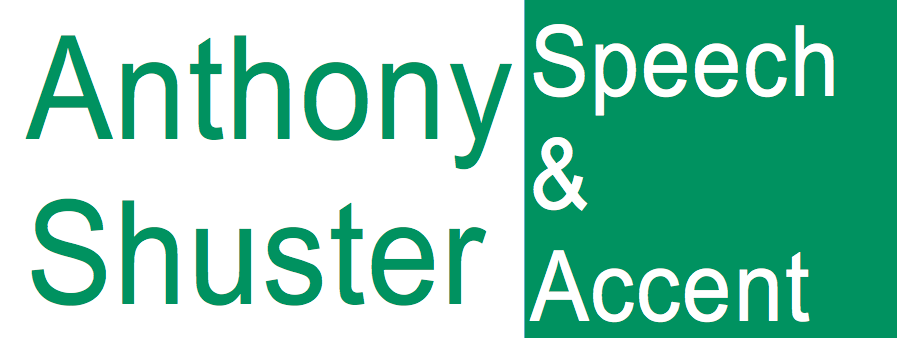Accent, Confidence, and Clarity: Why You Don’t Need to Sound ‘Posh’ to Be Heard
Sean Connery: the mosht famoush Shcottish acshent in movie hishtory
Can a strong accent hold you back - or help your career?
I had a good chat recently with The Scottish Sun about accents, bias, and what speakers can do (or not do) about the way people react to Scottish accents.
They rang me up after media coverage of a Scottish football manager in the English leagues claiming unfair treatment at the hands of English refs due to his accent being perceived as 'aggressive'.
For accent reduction, I tend to work mostly with professionals who speak English as a second language, but when I do work with native English speakers, the majority who come to me looking to change their accents are from Scotland.
But unlike non-native English speakers, Scots tend to ask variations on the question:
'Do I really need to change my accent in order to be a better communicator?'
The answer: no—but you may need to work a bit harder on other things.
Do I need to change my accent?
Why are Scottish people - and other native Brits - often reluctant to change their accents?
Compare them with ESOL (English for Speakers of Other Languages) speakers.
My theory is that non-natives tend not to have too much anxiety about losing their identity or pandering to prejudice when they change their accents - although it's rare for someone to say to me 'I want to get rid of every trace of my accent, I want to sound 100% English'.
For French or Russian or Polish or Mandarin speakers, they have options: two (or more) languages in which to express themselves!
They will always have the speech patterns of their native tongue, and will always feel like they can be themselves in their first language, even as their additional language of English takes on a more English sound.
But for native English speakers like Scots, we're talking about making changes to the sound of their first or only language - the language in which they think, the language in which they hold their sense of themselves.
So it feels like messing with who they are - not just how they sound.
Accent, Class, and British Culture
The other big factor for English speakers from the British Isles, is class and culture.
The worry for Scottish English speakers is that 'reducing' the accent means - reducing it to what?
A 'soft' Scottish accent?
To most Scottish ears, a 'soft' accent means a 'posh' accent. Or worse - an English accent, with a hint of heather :)
And the last thing most Scots want to do is come across like they're trying to sound posh, or English or both.
If you aren't familiar with British history or the role that social class plays in British society, then it would take too long to fill you in here, as to why. Suffice it to say that the 1000-year relationship between Scotland and England is like any between neighbouring countries where one is bigger, stronger and richer than the other; tense and complicated.
Distinctive Accent, a Distinctive Voice
The thing is, although some Scots find they have difficulty south of the border (and sometimes they face prejudice even in their home country), Scottish accents regularly top national polls of favourite regional UK accents.
Many people associate a Scottish accent with warmth, authenticity, and personality—qualities that are increasingly valuable in leadership, media, and communication.
So the advice to Scots should be - don't change a thing! Right?
Put it this way: the accent is often not the issue.
As I say in the Sun article, there's a lot more to Scottish speech patterns than swooping vowels and guttural consonants.
Fast-paced speech and unfamiliar rhythms can mean some listeners struggle to keep up.
Connolly, Connery, McGregor: great speakers, not just great Scottish speakers
Billy Connolly: known in Scotland as ‘the Big Yin’ (the ‘Big One’) but nowhere else, because ‘yin’ for ‘one’ makes no sense to non-Scots
Billy Connolly has probably the most famous Scottish accent is the world (ask your parents, Gen Z) and it's not the mildest accent, by any means.
Actors like Sean Connery famously made James Bond slightly Scottish and Ewan McGregor uses his native accent confidently on film —but all these guys also modulate tone, pace, and emphasis in ways that help them connect with a broad audience.
Ewan Mcgregor: often uses his Scottish accent on screen (not just because he’s awful at American accents haha)
They’re not masking their identity. They’re meeting the listeners halfway.
This is exactly what I teach in my 1:1 speech coaching sessions: you can honour your roots, AND sound clear, engaging, and professional.
Understanding Accent Bias—And What to Do About It
Bias around accents—especially working-class or regional ones—is still real. I've written here before about how people may (wrongly) associate certain accents with lack of authority, education, or credibility. This is especially true in sectors like law, finance, or broadcasting, which in the UK tend to be dominated by people from middle-class backgrounds, who were privately educated, and therefore tend to have a certain kind of accent.
But bias doesn’t mean you need to abandon your non-standard accent completely.
You can own it—and learn to manage how you come across.
In this recent post, I talk about the 'work' that speakers need to do to make the listener's job easier. This includes:
Pacing: pause more often when introducing complex ideas.
Landing thoughts: vary your intonation to emphasise key points. Lift the pitch of your voice when you start a new topic.
Energy: Be generous and varied with your vocal expression—it’s what keeps people listening.
In that article, I don't mention the speaker's pronunciation once (even though Chris Packham has a weak 'r' - uh-oh, it's like my old elocution teacher from drama school is haunting me).
These techniques don’t require changing your accent. They do require greater awareness of the work that listeners have to do to when they listen, and the ways in which skilled speakers can reduce that workload.
When Accent Affects Clarity
Ok, so we're not getting preoccupied with changing accents.
Nevertheless, some features of a broad Scottish accent—like a rolled ‘r’, or flatter vowel sounds, like 'doon' and 'toon' for 'down' and 'town' —are less familiar to international ears. Or even to some English listeners.
If you’re working across borders or speaking to a broad audience, you may need to adjust certain sounds or speech habits.
But here’s the distinction: adjustment is not abandonment.
It’s a bit like choosing simpler words in writing, or adapting your message for a general audience who don’t know all the usual technical jargon.
You’re not speaking falsely or 'dumbing down' necessarily —you’re making sure you're understood.
For more on this, check out my guide on how to speak clearer English without 'faking' the accent.
Why Clarity Beats Conformity
The goal of accent reduction is not to iron out character, warmth or individuality. It’s to ensure your message is what people remember—not just your accent.
As someone with a strong Scottish, Irish, Welsh or regional English accent, you might have to work a little harder to be understood by people outside your region—but this can actually give you an edge.
Why? Because it means you’ve thought about your delivery. You’ve earned the listener’s attention.
And in a world of forgettable corporate monotone, that’s a real advantage.
Accent advantage: colleagues were non-plussed when the presenter tried to liven things up by putting on a strong Glasgow accent. He didn’t understand the assignment.
Final Thoughts: Keep Your Accent. Find Your Voice.
If you’re wondering whether your accent is holding you back, remember this:
You don’t need to sound entirely “neutral” to be credible.
You can keep your accent and still speak with clarity.
Your voice is a huge part of your presence—don’t dilute it. Develop it.
Whether you’re leading meetings, pitching ideas, recording voiceovers, or preparing for a big talk, your speaking skills are one of your greatest assets.
I can help you sharpen those skills - book a free one-hour taster session with me, online, and let's see what we can do.
Want to go deeper?
Mastering English Pronunciation: why doesn’t 'work’ rhyme with ‘fork’?
Should you change your accent? My review of You’re All Talk by Rob Drummond
📰 Full article in The Scottish Sun:
Scottish Accents Can Lead to Success—if Used Right




